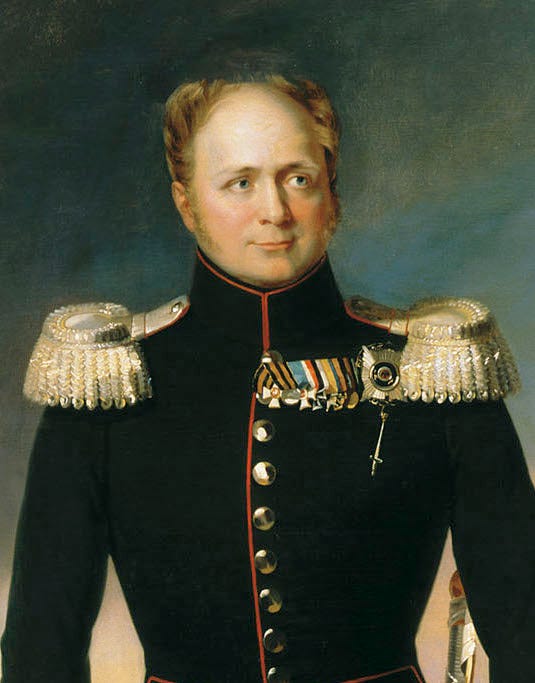
Alexander I of Russia (1777 – 1825), was the eldest son of Emperor Paul I and Sophie Dorothea of Württemberg.
BOOK ONE
Book One, Part Three
Chapter 10
The emperor, with the liveliness of a boy of fourteen, “a gentle, mild light” pouring from his eyes. But he feels the chill when face-to-face with the wounded: “Gently, gently! Can’t you do it more gently?” he asks as they carry a wounded man away. “What a terrible thing war is.”
Chapter 11
The emperor falls sick after seeing the killed and wounded at Wischau. But the decision to attack has been made.
Chapter 15
He is looking thinner after his recent illness. But he looks brighter and more energetic than before and tells Kutuzov that they are not on parade, so they don’t need to wait until all the columns are in formation. His energetic impatience contrasts starkly with Napoleon’s supreme calm.
Chapter 18
“The Emperor was pale, his cheeks sunken, and his eyes hollow, but the charm, the mildness of his features, was all the greater.” Nikolai Rostov encounters Alexander alone on the battlefield. Captain von Toll approaches him and speaks warmly with him as he cried, covering his eyes with his hand.
Keep reading with a 7-day free trial
Subscribe to Footnotes and Tangents to keep reading this post and get 7 days of free access to the full post archives.




